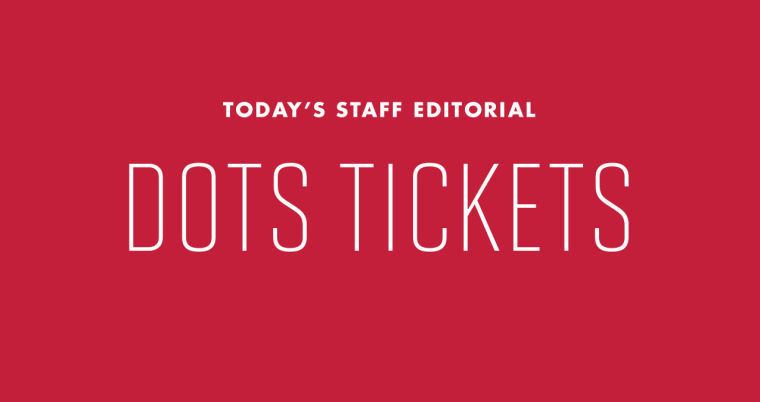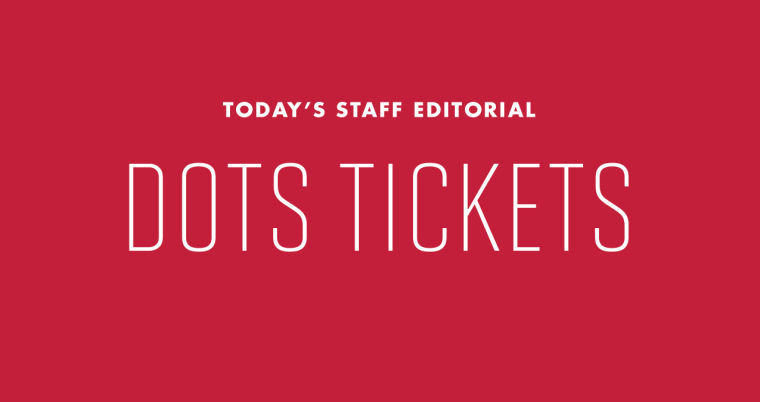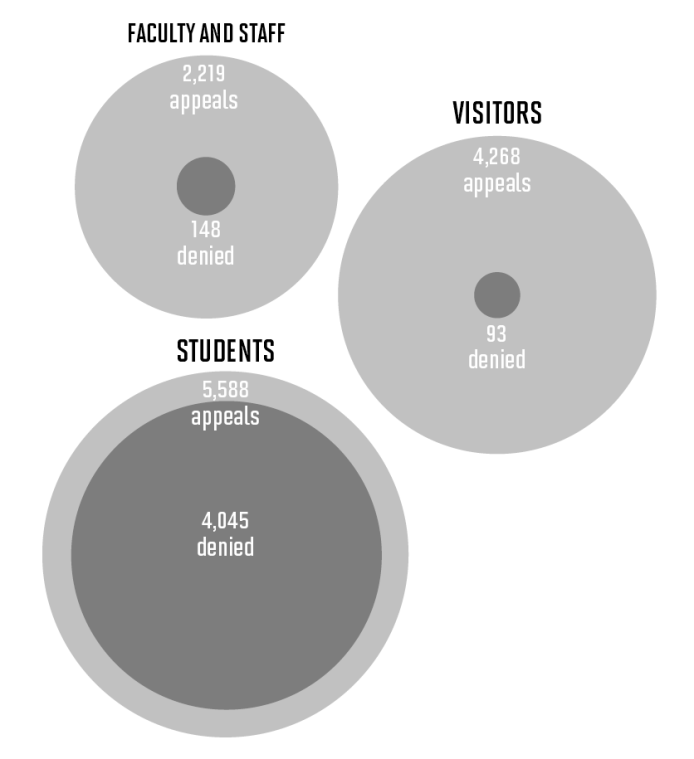There are few administrative departments at this university that students seem to disdain as much as they do DOTS.
Slapping students, their families and their friends with steep tickets since their first visits to the campus, the Department of Transportation Services is far from the student community’s favorite.
And as such, DOTS should be scrutinized carefully, met with checks and balances at every turn. But a recent change in policy does quite the opposite.
Last summer, DOTS ended its second appeals process for parking tickets. While ticketed students once had the option to request that the Office of Student Conduct and the University Appellate Board review a second appeal, DOTS now has the final say after one appeal.
Without a third-party department holding DOTS at least modestly accountable, the department has little to no reason to grant appeals or reconsider ticketing decisions.
The numbers were already discouraging. In fiscal year 2013, DOTS issued 71,117 tickets and received 12,075 appeals.
The largest portion of those appeals, almost half, came from students, who filed 5,588. DOTS went on to deny 4,045 of those student appeals, or 72 percent.
By contrast, the department denied only 6.7 percent of faculty and staff’s 2,219 appeals. Visitors? DOTS denied just 2.2 percent of their appeals.
And that’s not all. While students had only about one in every 10 of their tickets voided — their appeals fully recognized — faculty, staff and visitors all had more than half of theirs nullified.
In that same fiscal year, DOTS pulled in 44.9 percent of its revenue from student parking registration and parking violation fines.
Why are students shouldering so much of the DOTS budget? Why are our appeals so clearly treated with more flippancy and less urgency?
DOTS Director David Allen told The Diamondback the second appeals process was a waste of money, costing the department $10,000 a year.
It’s odd, however, that Allen didn’t do much to protest his $20,656 raise between 2012 and 2013, according to The Diamondback’s Salary Guides.
And that’s just part of the $113,088 the department has offered to three of its top administrators in recent years, according to the American Federation of State, County and Municipal Employees.
Allen said if “students want to pay for a second appeal by levying $10,000 in additional, nonmandatory fees in the parking fee, [DOTS] can do it.”
He’s right. We as students rarely want more fees. But DOTS is already asking for a portion of the money from the next year’s student fee hike, and we’d rather pay for something that benefits us than help finance his five-figure raises.
In order to keep DOTS at least remotely accountable, $10,000 is a bargain — less than 0.1 percent of the department’s operating budget (and just more than twice what the department wanted to pay out in a widely criticized video contest that offered $4,328 to the winner last year). When looking to cut corners, the department shouldn’t be going after one of its few good policies; it should focus on keeping already-high salaries where they are.
Additionally, that $10,000 might not even be necessary. The appellate board expressed its willingness to offer the second appeals process for free in a proposal to the University Senate.
This editorial board tips its hat to the Graduate Student Government and the appellate board for calling on DOTS to reinstate the second appeals process. It’s unfortunate the department was allowed to get to this point, but it’s integral that students push right back.
We’re tired of shelling out usually hard-earned money to pay off those obnoxious yellow envelopes on our windshields. And we want an objective party to have our backs when those yellow envelopes turn out to be bogus.
Charts to scale based on area. Graphic based on fiscal year 2013 by Dan Appenfeller/For The Diamondback





